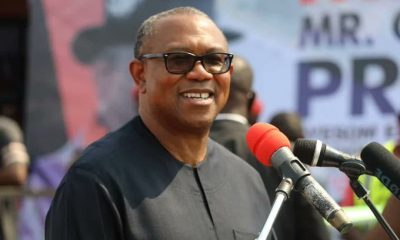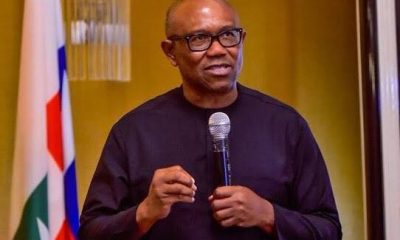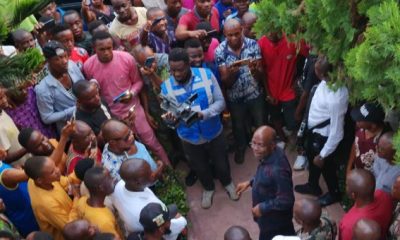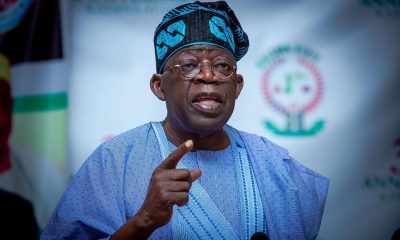News
Obasanjo raises alarm, says 20m out-of-school children Boko Haram in making

Nigeria’s former President, Olusegun Obasanjo, Tuesday declared that the issue of 20 million out-of-school children in the country might give rise to another monster of Boko Haram insurgency, if nothing is done to arrest the situation.
He said that the number constitutes about 10 percent of Nigeria’s population which should not be ignored.
Obasanjo spoke as a panellist at the National Summit on Tertiary Education Reform with the theme ‘Reimagining Tertiary Education in Nigeria: Issues, Challenges and Solutions’.
According to the former president, the greatest resource Nigeria as a country has today is not oil but its people.
He said: “How many are we today? We are about 216 million and that is a great resource. Tertiary education is very important. But education, particularly education that has left 20 million of our children out of school and those twenty million have no access to education.
“They cannot be effectively part of nation building because they have not had the opportunity to develop their innate capacity to the extent that they can be useful to themselves, to their families and to their community let alone their nation, let alone Africa.
“Now tertiary education is important and my emphasis is on education properly, because the five points I have taken from your speech are zeroed on education in general, although we have the issue of ASUU and the government. And that would be an unending. In my time we had it. And if any government had done anything for ASUU my government did. They all started buying cars and building houses. Even primary school teachers were buying cars. But we must find a solution.
“So, what are the issues? The issues to me are that we are cutting more than we can chew. Who is looking at our population ahead of time, five years from now and ten years from now, and what can we do about it? And apart from food which is very important, who are the people thinking about that and working forward on that.
READ: Controversy trails Tinubu, Obasanjo meeting, ex-president denies endorsing APC candidate
“After food and after health, the next important aspect of our life is education. Now, if this is the position and these are rights that we must have, what do we do? We know that if we continue the way we are going, by the year 2030, 2040, 2050 what our population would be. We have to think about it and how we would sort it.
“And I believe, that you ask where did we miss the road? We missed the road when the whole world is talking of free education. Education for all. And we did not follow that. It was bad news. We today we have 20 million out of school children. Almost 10 percent of the population. We continue to miss and we are still missing. That is a very bad one. Can we do anything about it? I believe we can.
“Those 20 million children that are out of school, we can get them back to school. If we do not get them back to school, we are preparing for Boko Haram of tomorrow. It will happen as sure as daylight. What can we do? Where are these 20 million children? Where are they located? Can we have schools in the morning and afternoon to get them in at least for six years.
“In the period of six years where this is happening, we would prepare for the transition from primary school to secondary school. And if we are able to do that, we have started the process of lifting education, an instrument of nation building.
“I believe anybody who is able to go through secondary school has the basic to prepare himself as a working person. And that is possible, and that must be the minimum. And I believe that Nigeria has the resources to able to get all the children of Nigeria through secondary education. All the children, no exception. Male and female.
“Tertiary education requires attention, but also primary and secondary education. I believe to a large extent that is our problem. Education is not responsibility of government alone. It is responsibility of all. What of parents, religious leaders, community. They all have responsibility on education of the child. I believe the starting point is this.”
Reacting to information that a loan bill was still in the works to help indigent students fund their education, Obasanjo welcomed the idea but wondered if the people who would need such will have access to it.
“Any Nigerian child should never be deprived of the right of education for lack of means. Hon. Speaker said to us that he has initiated a bill for loan. I believe it is very important. The point is that can we run it without corruption? Can we bring integrity into it? Can we really make sure that only those who deserve it get the loan? Now, my own children should not go to university and be asking for loan.
“I believe that we cannot say at the university level everything should be free. There will have to be certain amount of money to be paid. If they do it in private universities why not in government universities? And if you don’t have money, there has to be loan that at the end of the educational process, you can start paying back”, he said.












